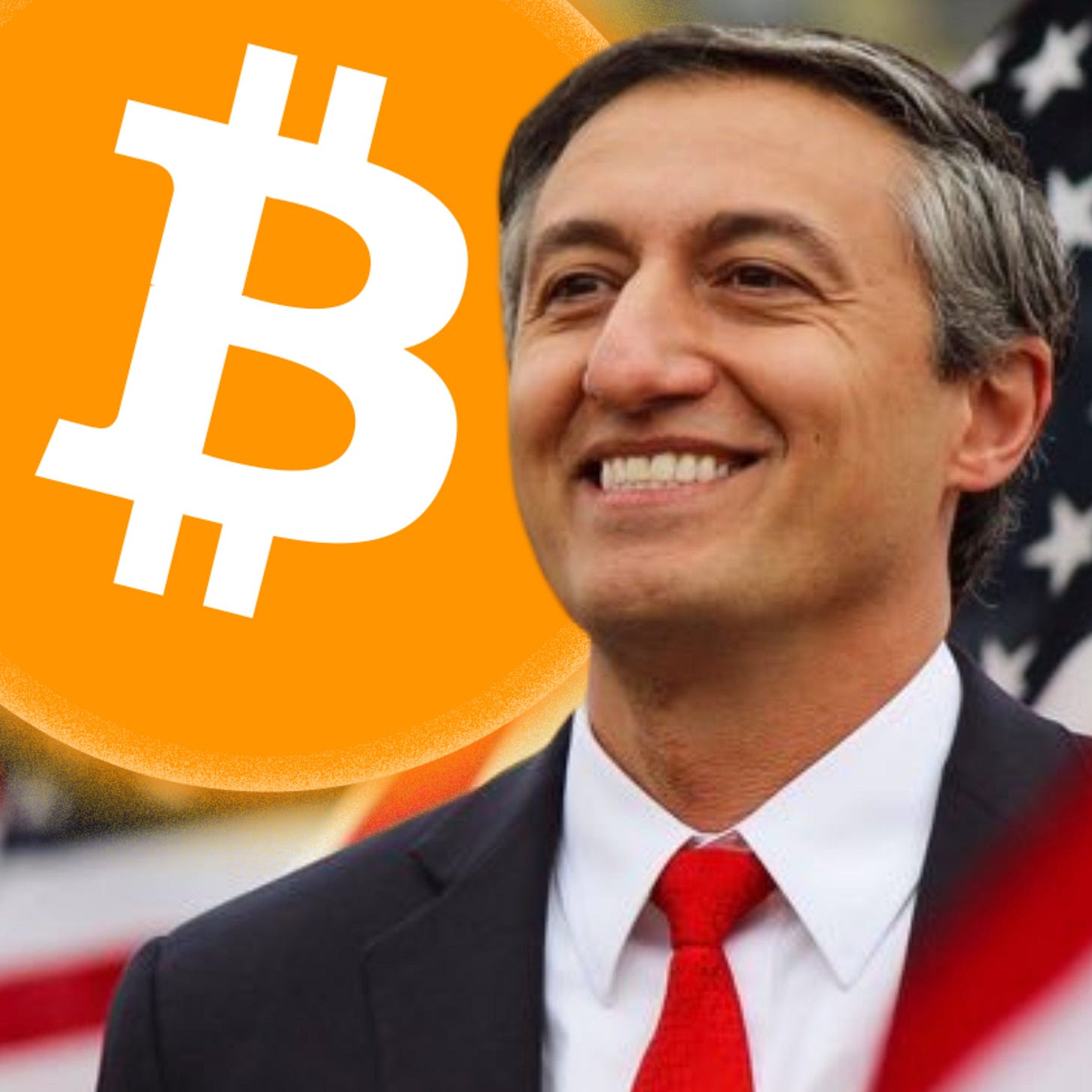Texas is considering a Strategic Bitcoin Reserve.
Why? The state with the 8th-largest economy globally ($2.4 trillion GDP) wants to hedge against inflation and lead the financial innovation race.
Here’s the wild story behind this bold move 🧵👇
Texas Representative Giovanni Capriglione just filed legislation to establish a Bitcoin Reserve for the state.
Yes, a Bitcoin Reserve.
This places Texas among a handful of states making strategic bets on Bitcoin as a long-term asset. But why now? Let’s dive in.
Texas isn’t new to Bitcoin.
It’s already a global mining hub with:
• 30% of U.S. Bitcoin mining capacity
• Favorable energy costs
• A robust regulatory framework
But this initiative? It’s about something much bigger.
Capriglione’s vision
Bitcoin isn’t just a speculative asset—it’s a strategic reserve.
Think of it as a modern-day gold reserve.
In an era of rising inflation and geopolitical instability, Texas sees Bitcoin as a hedge and a tool for financial sovereignty.
The move isn’t just about economics.
It’s about leadership.
Texas wants to position itself as:
• A leader in financial innovation
• A protector of U.S.-based Bitcoin mining
• A state that’s prepared for the next wave of tech-driven finance
Why does this matter?
With inflation eating away at fiat currencies, states are exploring alternatives.
Bitcoin offers:
• Decentralization
• Scarcity (21M supply cap)
• Portability across borders
It’s the digital equivalent of gold.
But here’s the controversial part:
Not everyone agrees. Critics argue:
• Bitcoin’s price is too volatile.
• States shouldn’t gamble taxpayer funds.
• The regulatory future of Bitcoin is unclear.
Texas is betting big against the skeptics.
Capriglione knows the risks, but his timing is strategic:
• Texas passed proof-of-reserves laws for crypto exchanges.
• Financial institutions are relocating to Texas.
• Bitcoin adoption is growing globally.
Texas is building the infrastructure before the next wave.
Think about this:
What if a state-controlled Bitcoin reserve could stabilize U.S. mining operations?
Texas could insulate its energy sector from foreign interference and support a key industry in the digital age.
Initial resistance was fierce.
Critics called it reckless. Some even questioned the legality of a state holding Bitcoin.
But Capriglione doubled down: “If not now, when? If not Texas, who?”
It’s hard to argue with that logic.
The bigger picture?
Bitcoin is part of a larger economic trend:
The world is pivoting to programmable finance.
From China’s CBDC to El Salvador’s Bitcoin adoption, nations and states are rethinking their monetary strategies. Texas doesn’t want to be left behind.
This initiative also reflects the cultural relevance of Bitcoin in Texas:
• The state values independence and innovation.
• Bitcoin mining aligns with Texas’ energy surplus.
• It’s a symbolic push for economic freedom.
Bitcoin isn’t just a currency—it’s an ethos.
The impact could be massive:
• Hedge against inflation
• Stabilize U.S.-based Bitcoin mining
• Attract global attention (and investment) to Texas
If successful, it could even set a precedent for other states.
What’s next?
This legislation is just the beginning.
If passed, Texas will:
• Establish a framework for acquiring and managing Bitcoin.
• Monitor the reserve as a strategic asset.
• Lead the charge in digital asset innovation at a state level.
Love it or hate it, one thing is clear:
Texas isn’t waiting for Washington to figure out crypto.
By establishing a Bitcoin Reserve, it’s taking a bold stance on the future of money.
Thanks for reading! I work with founders and executives to decentralize traditional business models by incorporating Bitcoin’s core principles. Together, we’re building BitcoinFi—the permissionless future has arrived!
Love what you read? Subscribe and never miss an update!






